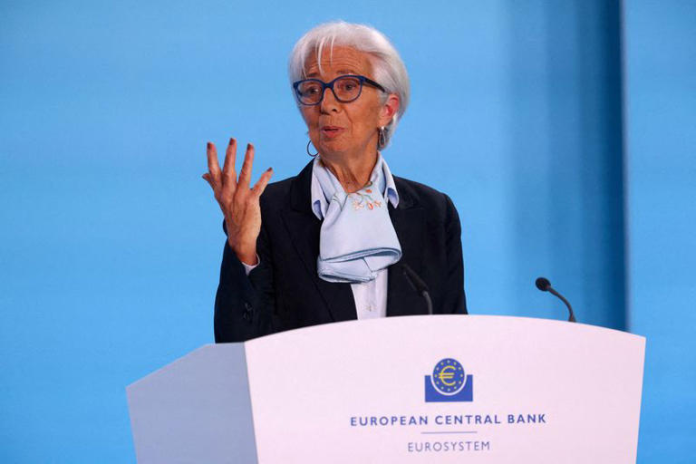The European Central Bank (ECB) will almost certainly cut interest rates and admit progress in tackling high inflation, according to Reuters.
ECB policymakers have made clear their intention to reduce borrowing costs after inflation in the 20 countries sharing the euro fell from more than 10 per cent at the end of 2022. Inflation has reached levels just above the 2% target in recent months. However, experts have warned that the struggle continues.
The overall decline will be more than enough for the ECB to begin to end the steepest series of interest rate hikes in its history. The hikes were in response to the resilient price rises triggered by the war in Ukraine.
The ECB will now join the central banks of Canada, Sweden and Switzerland in cutting rates and well ahead of the US Federal Reserve. However, inflation in the eurozone may be more resilient than expected, as it has been in the United States.
This means that ECB President Christine Lagarde and her colleagues are unlikely to commit to further rate cuts at or after their July meeting. Instead, they are expected to emphasise that any further moves will depend on incoming data.
Borrowing costs should also remain high enough to keep inflation in check. HSBC economist Fabio Balboni stated:
Further cuts in September and December remain our central case. But if the recent resilience in services inflation proves sustained, we see increasing chances that the ECB might have to be more cautious on the way down.
Policy mistake
However, Gabriele Foà, a portfolio manager at Algebris Investments, said the cut “may soon be seen as a policy mistake”. ECB chief economist Philip Lane set the tone last week, saying a rate cut would not be a “declaration of victory.” The pace of further cuts will depend on the progress of domestic inflation and demand, he added.
The recovery in economic growth has also made the ECB less relevant. The bank is likely to raise some growth forecasts on Thursday, rebutting the argument that high rates are stifling economic activity.
However, the new forecasts will still assume that inflation will return to the ECB’s 2% target next year. That would keep the central bank on track for further policy easing, barring new inflation surprises.
